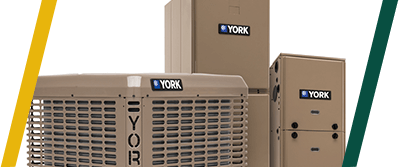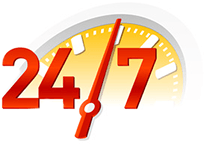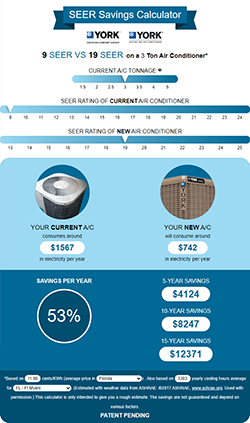How long should my air-conditioning system last?
Typically an air conditioning/heating system will last 10-12 years. Beyond that, efficiency steadily declines. New, more energy-efficient systems can cut electrical consumption up to 50%, providing substantial savings on your electric or gas bills. Maintenance is a must to maximize efficiency and protect your investment.
My electric bills are high. Will a new air conditioner lower my monthly bill?
YES! By installing a new, high efficiency system (14.3 SEER2 or higher), you can reduce your energy usage anywhere from 20% to 50%. Use our free SEER Savings Calculator to see for yourself how much you can save!
What is SEER/SEER2?
SEER stands for Seasonal Energy Efficiency Ratio. SEER2 is the upgraded version of SEER which came into effect on January 1, 2023. Going forward, all new air conditioners and heat pumps will have a SEER2 rating instead of a SEER rating. The size of an air conditioner is rated in BTU or Tons, however the efficiency is rated in SEER/SEER2. It’s like mpg (miles per gallon) in a car; the higher the mpg (or SEER2), the lower the gasoline (electricity) bill. The current minimum is 14.3 SEER2 for new installations.
What is a heat pump?
Is it better than an air conditioner? In the summer, a heat pump is no different than an air conditioner. In the winter, a heat pump operates in reverse and heats the indoors. A common complaint about heat pumps is that the air coming out of the registers is not hot enough. Heat pumps need auxiliary heat (electric resistance heat or gas furnace) to help them when it is extremely cold or when the thermostat is moved more than 2 degrees at a time. However, here in the moderate climate of Southwest Florida, heat pumps can provide dramatic savings, particularly if you have electric heating.
What is the difference between a split system and a package unit?
Residential air conditioning/heating systems can be split systems or single package systems. Most are split systems. A split system has one of its heat exchangers (which includes the compressor) located outdoors and the other (the indoor coil) located indoors. A single package system has both heat exchangers located in the same unit, usually outdoors.
Is it OK to replace only the condensing unit, and not the air handler in my split system?
Replacing only the indoor (air handler) or only the outdoor (condensing) unit of a system can result in a mismatch that compromises efficiency. It is ideal to buy and install both units together. Read more in our blog post, Why a Mismatched Air Conditioning System is a No‑Go.
I know a friend who says he can install a new air conditioner for me, and save me a lot of money. Is this a good idea?
Be sure that he has experience, is licensed (HVAC), obtains all required permits, meets all county code requirements, and has adequate insurance. If he meets these requirements, you may save some money. However, keep in mind that you will be dependent on him and his schedule for warranty repairs. Just be sure you are not getting a “cheap” installation that will cost you more in the long run.
How does Kobie Complete Heating and Cooling, Inc. determine the size of air conditioning system to install?
Our trained technicians measure your home and calculate the heating and cooling load on the home (based on window size and direction, walls, ceiling, floor, appliances, insulation, current equipment and ductwork). This will determine the proper size of equipment that is needed.
I want a big air conditioner. Someone told me this is not necessarily good. What are the advantages and disadvantages?
An air conditioner that is “oversized” will cool your home more quickly, but will not be as energy efficient and will not remove humidity adequately. If your ductwork is not big enough for the “oversized” unit, the coil may freeze and then the system won’t work at all. We recommend a system that will cool your home to 75 degrees when it is 95 degrees outside, and then adjust slightly if needed to meet your temperature preferences.
Does Kobie Complete Heating and Cooling take care of all necessary permits?
Yes. We always obtain the necessary permits, and post them as required. A county inspector will be scheduled to inspect the newly installed equipment typically several weeks after the installation to ensure all code requirements have been met. Learn more about our air conditioner replacement service.
How many companies should I get bids from before I decide on a new system?
Two or three bids are generally enough. Consider more than just price when purchasing a new air conditioning system. You want a company who will always be there for you, 24/7, to maintain and service your investment, year after year. Look closely at the recommended equipment’s features and benefits, efficiency ratings, and manufacturer’s warranties. The team at Kobie Complete Heating and Cooling listens to you, the customer, and asks you specific questions so that we may recommend new equipment options that best meet your individual needs and budget. One size does not fit all. Ask companies about finance options and any manufacturer’s rebates that may be available.
How do I check out the companies I am considering to install my new system?
You can verify that they are a HVAC licensed contractor by contacting the State of Florida Department of Business and Professional Regulation (850) 487-1395. Ask them to show you proof of their liability insurance coverage. Ask if they are an FP&L approved independent contractor. Do they offer 24-hour/7 day a week service? (You may need them on a Sunday morning or on a holiday!) Then ask for a list of some recent customers, and give them a call. No one can tell you more about a company than their own customers! (See “COOL TIPS” How to Find a Quality HVAC Contractor).
How often should I schedule a maintenance check on my air conditioner?
Here in Southwest Florida, you should have an annual check-up completed on your system. Your air conditioner needs regular maintenance to keep it operating properly, efficiently, and safely. Kobie Complete Heating and Cooling, Inc. offers a 3-year preventative maintenance agreement for our customers’ convenience. As a PMA customer, we take the hassle out of remembering to take care of your air conditioner. We contact you annually to schedule the necessary maintenance for your system, and in addition, you’re eligible for discounts on any needed service or new equipment. Call today for complete information: (941) 474-3691.
How often should I check my AC filter?
It’s a good idea to check it monthly, and clean or replace it as needed. A good tip for remembering is to check it each month when your electric bill arrives. Clean filters reduce energy usage, and save you money! They also help prolong the life of your system. For more information about the types of AC filters, read our blog post, What is the Best AC Filter for My Home?
Should I set my thermostat fan to “ON” or “AUTO”?
For most people, AUTO is the preferred setting. When set on AUTO, the fan only comes on to circulate the air when the system comes on (either heat or cool). However, for people with respiratory problems, it may be beneficial to set the thermostat on the ON position so that the air is continuously being circulated and cleaned through the filter. The system is more energy efficient when set on AUTO. Learn more in our blog post, AUTO vs. ON: Choosing the Best Setting.
Should I repair or replace my system?
It depends upon the age of your equipment, how long you plan to live in your home, the cost and nature of the needed repair, valid warranties, your budget, and other factors. If your air conditioner is more than 6 years old, you may want to consider replacement vs. a costly repair. You may find that by financing a new, energy efficient system, your savings on your monthly utility bill exceeds your monthly payment for the new system. It is often worth a closer look. Learn more in our blog post, 10 Questions to Ask Before Repairing or Replacing Your Air Conditioner.





